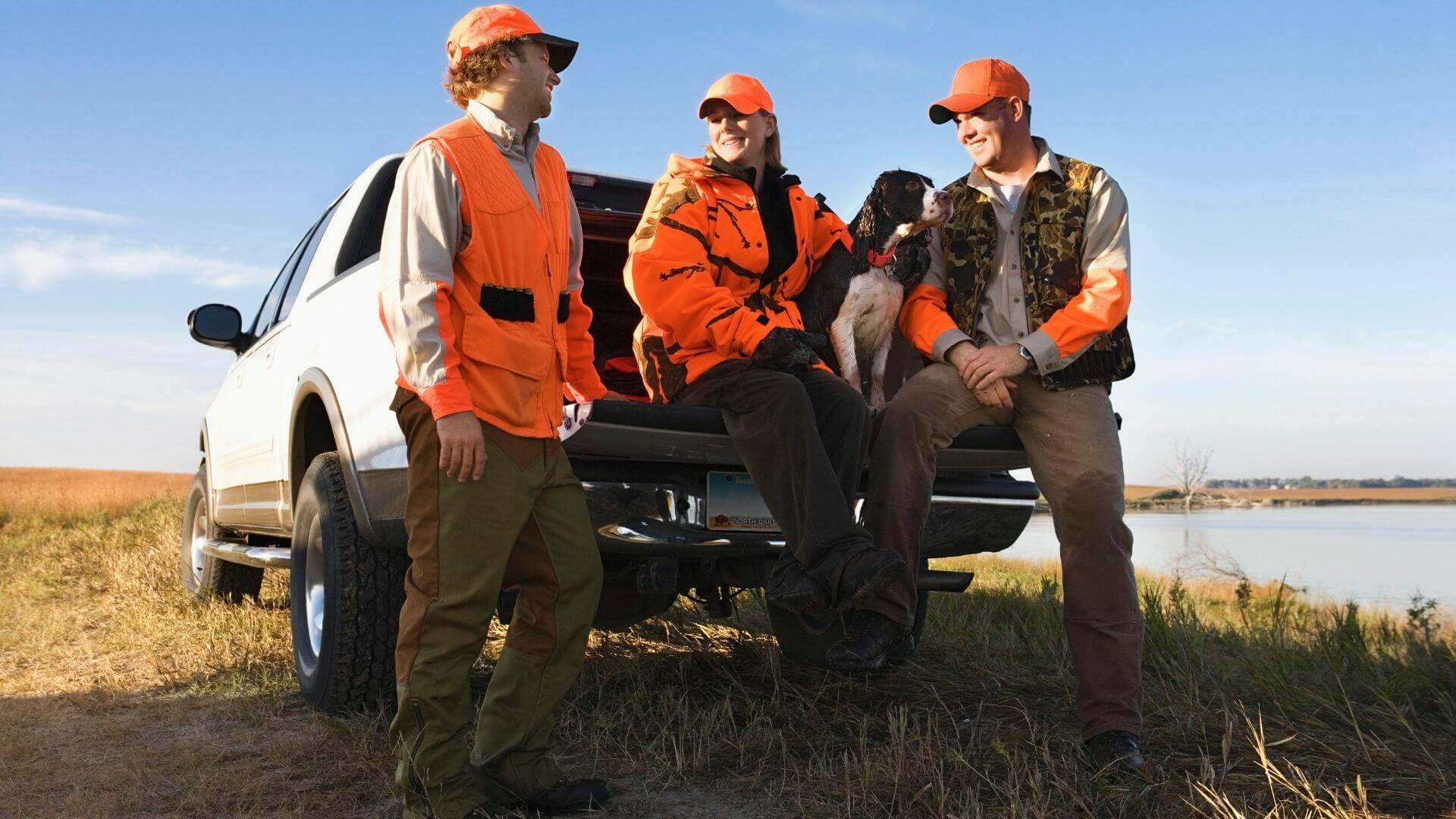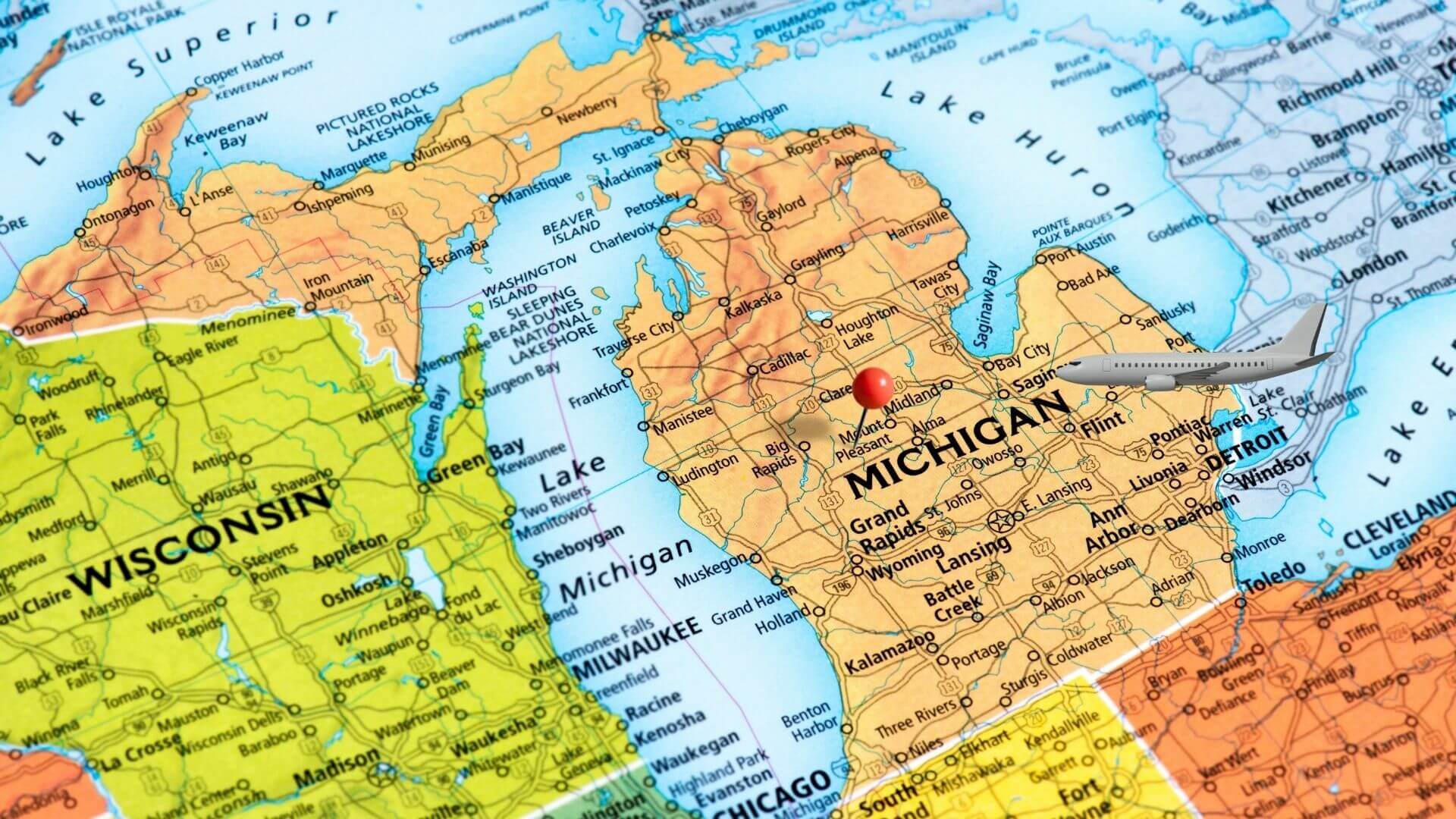Introduction
Michigan is becoming increasingly popular with non-resident hunters and non-resident buyers of land who are searching for value, natural beauty, and responsible wildlife management. Below is written directly for non-resident individuals, with step-by-step instructions that span the gamut from licensure through long-distance land scouting.
Why Michigan Remains a Top Destination for Non-Resident Hunters
 Michigan’s diversity also renders it a favorite among hunters. Whitetail does, wild turkey, waterfowl, and plenty of small game inhabit Michigan’s diverse landscapes. Real estate in Michigan is more affordable compared to surrounding Wisconsin and Illinois, which offer extra land for each dollar. Outdoor recreational facilities and the state’s rich tradition of hunting create a hospitable atmosphere for beginners and experienced hunters.
Michigan’s diversity also renders it a favorite among hunters. Whitetail does, wild turkey, waterfowl, and plenty of small game inhabit Michigan’s diverse landscapes. Real estate in Michigan is more affordable compared to surrounding Wisconsin and Illinois, which offer extra land for each dollar. Outdoor recreational facilities and the state’s rich tradition of hunting create a hospitable atmosphere for beginners and experienced hunters.
Understanding Michigan’s Non-Resident Hunting License
A standout feature for Michigan hunting is the affordable non-resident deer combo license, priced at just $190. This combination allows hunters to harvest two deer in a season—typically one antlered and one antlerless.
Licenses are conveniently available online via Michigan’s Department of Natural Resources (DNR) website, or in-person at authorized retailers statewide. Non-residents must also obtain a base license, which is required before purchasing any hunting privileges.
In addition to the deer combo, the state offers various licenses for turkey, small game, bear, and waterfowl. Special permits and stamps may be required for specific species or hunting zones. The Michigan DNR provides interactive guides and maps to help hunters choose the right license and understand bag limits, season dates, and mandatory reporting requirements.
For those planning multiple trips or investing in property, it’s important to stay informed about regulation updates and renewals each season. Michigan’s licensing process is user-friendly, and support is available online or through local DNR offices.
Planning Travel to Visit Michigan Properties

When planning your property visits, efficiency is key. If you’re coming from out of state, consider combining hunting trips with property tours to make the most of your travel. Aim for 2–3 day itineraries that allow you to scout multiple properties while experiencing the local hunting environment firsthand.
Notable regions to visit include:
- Upper Peninsula: Ideal for hunters seeking wilderness and abundant game. It offers solitude, thick forests, and large plots of land often near public game areas.
- Northern Lower Peninsula: Offers a balanced mix of wildlife and accessibility, with more infrastructure and easier access to services.
- Southern Lower Peninsula: Perfect for smaller properties closer to major cities and interstates. These properties are ideal for weekenders or those wanting easier travel logistics.
Coordinate property viewings with local Michigan agents in advance and ask if any properties allow trial hunts or have wildlife cameras installed. If possible, plan your trip during a hunting season to observe land activity and animal movement.
Also, consider attending a local hunting expo or land auction during your trip to meet agents and landowners directly.
Remote Due Diligence Tips on Michigan Hunting Land
![]() Using Online Resources
Using Online Resources
Remote mapping applications of the Internet, including Google Earth, OnX Hunt, and county GIS mapping, facilitate easy remote evaluation. Key features worth observing remotely are:
- Physical features
- Well defined boundaries
- Proximity to water bodies and accessibility for hunting
- Working with Local Real Estate Agents
It is crucial to negotiate with seasoned local land specialists in Michigan to ensure proper due diligence. Local hunting land dealers can offer:
- Immersive virtual tours
- Editing of drone video
- Trends in local wildlife and land conditions
Top Things to Think About When Buying a Michigan Hunting Property
Several important considerations can significantly impact your happiness with a hunting property:
- Accessibility: Offer proximity to public services and transport links.
- Habitat Quality: Assess the vegetation diversity, water, and the potential for improving game management.
- Regulatory Issues: Hunting regulations and zoning vary in each region, and comprehensive research or consulting an agent is required.
Financial and legal considerations for non-resident buyers
When buying land remotely, understanding financial and legal details is essential to avoid delays or surprises.
Financing Options
Many lenders offer recreational land loans, though terms and rates vary. Some may require a higher down payment (15–30%) or shorter loan terms. Check with local credit unions and rural banks, as they often have better familiarity with land transactions.
Property Taxes
Michigan’s property tax structure is relatively favorable, but rates differ by county and land classification. Agricultural and timber use exemptions may reduce taxes if the property qualifies.
Legal Support
Hire a local real estate attorney to handle title checks, easement reviews, and closing coordination. They can also help manage power of attorney for remote closings. Make sure the property has clear title, recorded access, and recent surveys to avoid boundary disputes.
Many non-resident buyers successfully close deals entirely online using digital signatures and escrow agents.
Frequently Asked Questions (FAQs)
Can non-residents hunt on their own land?
Absolutely. Non-resident landowners are fully permitted to hunt on their own property, provided they secure the necessary licenses.
Are additional permits required?
Typically, general hunting licenses suffice. However, certain species (like bear or elk) or specific areas may require special permits or limited-entry drawings.
Does Michigan offer special licenses for landowners?
There are no significant landowner-only licenses for non-residents, but owning land can provide better access to units and simplified logistics.
How do I find land that borders public game areas?
Use Michigan DNR’s Mi-HUNT interactive map or OnX Hunt to search for properties adjacent to public hunting lands.
Final Thoughts:
Investing wisely in Michigan Hunting Land is a recreational investment of economic value and personal gratification. Take advantage of remote evaluation technology, get acquainted with local towns and utilize expert resource assistance to ensure a successful property purchase. Your ultimate Michigan hunting retreat awaits—start looking today.
 Using Online Resources
Using Online Resources